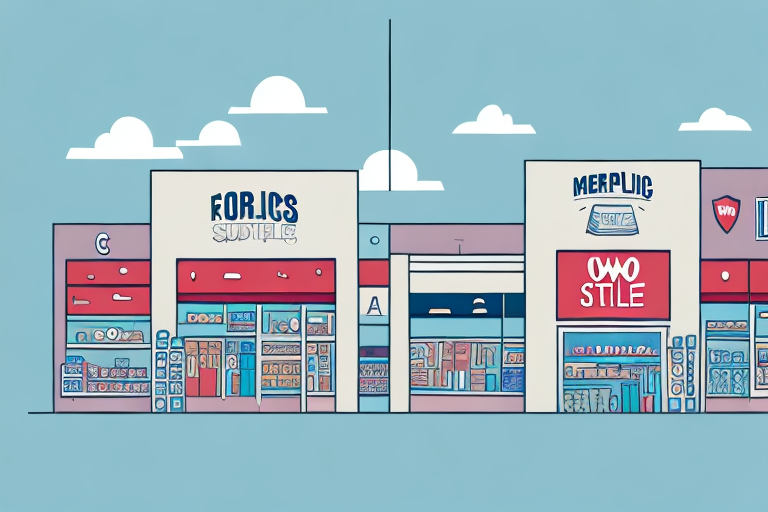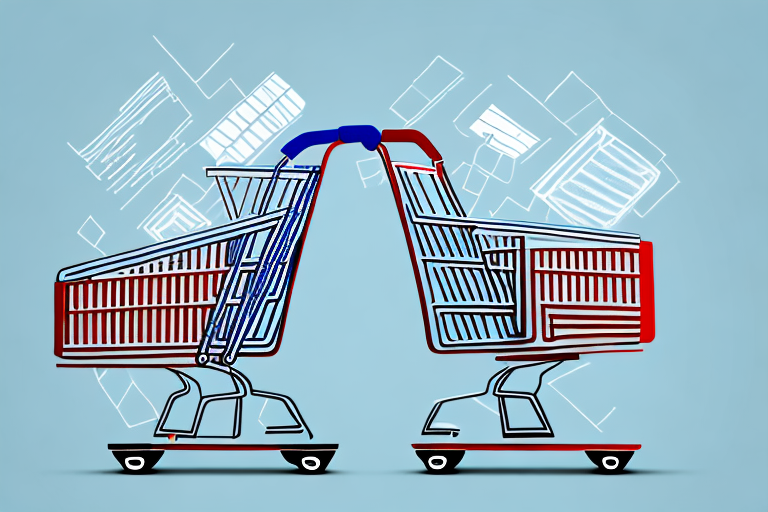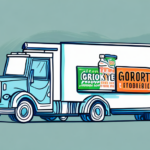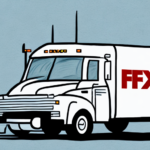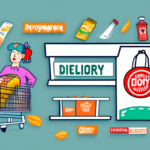Kroger vs. Target: A Comprehensive Retail Comparison
In the competitive landscape of retail, Kroger and Target stand out as two of the most influential players. Both retailers have established a significant presence in the market, each with unique strengths and strategies. This comparison delves into their history, business models, market positioning, and more to provide an in-depth analysis of how these giants stack up against each other.
Historical Background and Evolution
Kroger's Journey
Founded in 1883, Kroger is headquartered in Cincinnati, Ohio, and has grown to become one of the largest supermarket chains in the United States. With over 2,700 stores across 35 states, Kroger reported annual revenues exceeding $121 billion in 2023 (Kroger Investor Relations). The company has continually evolved, embracing digital transformation and expanding its e-commerce capabilities to meet changing consumer demands.
Target's Growth Trajectory
Established in 1902 and based in Minneapolis, Minnesota, Target operates over 1,900 stores nationwide with annual revenues surpassing $78 billion in 2023 (Target Financial Reports). Initially a discount retailer, Target has diversified its offerings to include groceries, electronics, clothing, and household essentials, positioning itself as a one-stop-shop for consumers.
Business Models and Market Strategies
Kroger's Business Model
Kroger focuses on providing a vast array of grocery products, pharmacy items, and fuel services. The company operates multiple store brands, enhancing its market penetration. A key component of Kroger's strategy is its loyalty program, Kroger Plus Card, which offers personalized discounts and rewards, fostering customer loyalty and repeat business.
Target's Business Strategy
Target emphasizes a curated selection of stylish and trendy merchandise at competitive prices. With a strong private label presence through brands like Goodfellow & Co. and Up & Up, Target caters to diverse consumer tastes. The Target Circle loyalty program provides members with exclusive discounts, free shipping on orders over $35, and personalized deals, enhancing the overall shopping experience.
Market Positioning and Consumer Appeal
Kroger's Position in the Market
Kroger positions itself as a leader in the grocery sector, offering comprehensive product lines that include fresh produce, organic options, and pharmacy services. The company's commitment to sustainability is evident through initiatives aimed at reducing plastic waste and improving energy efficiency (Kroger Sustainability).
Target's Market Niche
Target differentiates itself with a focus on style and convenience. By integrating groceries with general merchandise, Target appeals to consumers seeking a seamless shopping experience. The retailer's investments in technology, such as same-day delivery through partnerships with Shipt, reflect its adaptability to evolving consumer behaviors (Target Innovation).
Product Offerings and Pricing Strategies
Diverse Product Lines
Kroger offers an extensive selection of groceries, including fresh and organic options, alongside pharmacy and fuel services. In contrast, Target provides a broader range of products, from clothing and electronics to household essentials and limited grocery items, catering to varied consumer needs.
Competitive Pricing Approaches
Kroger employs a competitive pricing strategy, leveraging its Kroger Plus Card to offer discounts and personalized deals. Target, meanwhile, focuses on offering stylish merchandise at affordable prices, utilizing its Target Circle program to provide additional savings and benefits. Both strategies aim to enhance value for customers while fostering brand loyalty.
Store Layout, Design, and Online Integration
In-Store Experience
Kroger's store layout emphasizes convenience with wide aisles and clear signage, facilitating an efficient shopping experience. Target's stores are designed with aesthetics in mind, featuring eye-catching displays and organized sections that enhance the overall shopping environment.
E-commerce Capabilities
Both retailers have robust online platforms. Kroger offers services like Scan, Bag, Go and partnerships with Instacart for delivery, enhancing its digital footprint (Kroger Scan, Bag, Go). Target, through its partnership with Shipt, provides same-day delivery and streamlined pickup options, integrating technology to meet modern consumer expectations (Target Circle).
Customer Engagement: Loyalty Programs and Service
Loyalty Initiatives
Kroger Plus Card offers discounts on groceries and fuel, along with exclusive coupons and promotions. Target Circle rewards members with personalized deals, free shipping, and special birthday offers, fostering a strong sense of community and brand affinity.
Customer Service Excellence
Both Kroger and Target are renowned for their customer service. Kroger provides a 24/7 customer service hotline, while Target offers multiple support channels, including online chat features, ensuring accessibility and responsiveness to customer inquiries and concerns.
Sustainability and Financial Performance
Environmental Initiatives
Kroger has committed to reducing its environmental footprint through initiatives like waste reduction programs and energy-efficient store designs. Similarly, Target aims to source 100% sustainable cotton and eliminate single-use plastics, aligning with consumer values towards sustainability (Target Sustainability).
Financial Health and Growth
In terms of financial performance, Kroger reported annual revenues of $121 billion with a net income of over $2 billion in 2023. Target, with its diversified product offerings, achieved annual revenues of $78 billion and a net income exceeding $3 billion (Kroger Financials, Target Financials). Both companies have shown resilience, with their stock performances reflecting consistent growth relative to the S&P 500 index.
Future Outlook in a Competitive Retail Environment
Kroger and Target continue to navigate the challenges posed by e-commerce giants like Amazon and Walmart. Kroger's investments in digital innovations and Target's expansion of online services position both retailers to effectively compete in the evolving market. Their strong brand reputations and loyal customer bases provide a solid foundation for future growth and adaptability.
Conclusion: Choosing Between Kroger and Target
Determining whether Kroger or Target is the superior retailer depends largely on individual consumer preferences. Kroger excels in the grocery sector with its extensive product range and strong loyalty programs, making it ideal for those prioritizing grocery shopping and pharmacy services. Target, with its diverse merchandise and emphasis on style and convenience, appeals to consumers seeking a broader shopping experience with added benefits through its loyalty program. Both retailers demonstrate robust strategies and commitment to customer satisfaction, ensuring their continued prominence in the retail industry.













